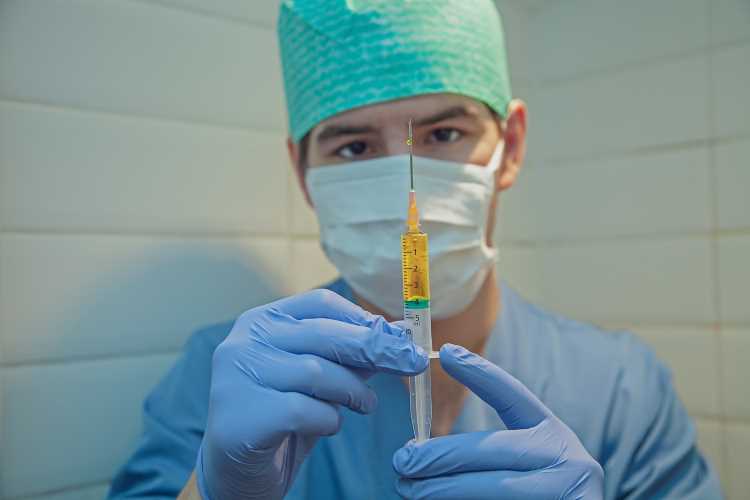
The world of Covid-19 vaccines is buzzing like a busy beehive. As of now, 68 candidate vaccines are in various stages of human trials – 38 in phase I, 17 in phase II and 13 in phase III. None are approved yet for full use. The music comes mainly from three lead vaccines nearing the end of phase III, tested by two Pharma majors Astra Zeneca and Pfizer as well the start-up drug maker Moderna.
Last week drug maker Pfizer reported that its corona virus vaccine was 95% effective in the first set of complete results from a late stage of phase III trial. The company also added that the vaccine was 94% effective in older adults, an age group naturally known for lesser benefits from such vaccines. The trial results are stellar in that they broke previous records from a target molecule to a fully developed vaccine within a year, a thing never heard before in history. Pfizer teamed up with partner BioNtech to develop this candidate vaccine. The Phase III trial recruited 44,000 participants from several countries. One half of the participants received the candidate vaccine and the other a shot of saline. The second dose was given in the vaccine group after three weeks. The researchers noted a total of 170 cases of Covid 19 among the participants, 162 from the placebo group and 8 from the vaccine group. Out of the 10 severe cases of Covid 19 seen among participants, 9 were from the placebo and just one from the vaccine group.
READ I Life vs business: The ethical dilemma of the pandemic era
Moderna recently announced that its corona vaccine, an mRNA vaccine just like Pfizer’s was 94.5% effective, bringing the race to a photo finish. The company was reporting the interim results of the Phase III trial that recruited 30,000 people. Similar to the Pfizer study, half of the recruited participants got an experimental vaccine and the other half got a shot of saline as placebo. Moderna’s vaccine required two doses four weeks apart compared to Pfizer’s which was two doses at an interval of three weeks.
In the phase III study, 95 people contracted Covid – five were from the vaccine group and 90 from the placebo group. Among the 95 who had the illness, 11 had a severe form of the disease, all of whom were from the placebo arm. The results were analysed and verified by an independent DSMB (data safety monitoring board) appointed by the NIH (National Institutes of health). An elated Stephane Bancel, CEO of Moderna proclaimed that the results are the first clinical validation of the candidate vaccine in preventing Covid 19 including severe forms of the disease. The Phase III study is designed to stop after 151 cases of Covid infection. Moderna plans to produce 500 million to one billion shots in 2021. Even though this is the plan, it remains to be seen how this will be achieved given the fact that Moderna has never marketed a vaccine before. Moderna also has plans to test the new vaccine in children in the coming months, starting with adolescents.
READ I Race to Covid-19 remedy: Will the Oxford vaccine fail?
Pfizer and Moderna have developed these new vaccines using a new technology that has never been used before in humans. These new vaccines use a synthetic version of genetic material from the corona virus called mRNA. Once inside the human cells, these mRNA programs those cells to produce many copies of the fragment of the virus. These newly produced fragments alerts the immune system which gets stimulated and ready to attack if the person is exposed to the real virus later in life.
Moderna has an advantage over Pfizer vaccine as it can be stored at temperatures that can be easily maintained. Pfizer vaccine needs a very low temp for storage (-70 Celsius) and can be a logistics nightmare for low resource countries like India. The downside is that Moderna has more mRNA particles per vaccine and is more difficult to manufacture compared to Pfizer and may end up with a higher price as well.
The two companies were the first to announce interim data from large studies. Both companies announced their results in news releases. The final results will be officially published in peer reviewed medical journals once the trials are complete. Pfizer has already submitted its application for emergency use authorization (EUA) and Moderna plans to take the emergency authorisation route before the end of this month.
READ I A confident India must join RCEP, other trade blocs
This week, Astra Zeneca joined the party with interim results that are a bit intriguing.
Their vaccine uses a weakened version of chimpanzee adeno virus to carry corona virus genes into human cells and elicit an immune response.
Astra Zeneca and Oxford released their interim results last Monday which included data from 131 volunteers who tested positive for corona virus during the phase III trial that is ongoing in Britain and Brazil. Most of the recruits got two shots (either a vaccine or a placebo). The doses were given one month apart. Surprisingly, they gave some volunteers in UK a half dose during the first shot by mistake. The company stated that it was a dosing error from a contractor. Interestingly this was noted when they found that side effects were less in number and intensity in a subset of recruits. The trial team then went on to give these volunteers a full dose as the second shot. So, for the Oxford vaccine, there were two types of doses – a full plus full (all of Brazil and a portion of UK volunteers) and a half plus full (remaining UK volunteers). Surprisingly, the “by mistake half plus full” dosage arm reported 90% efficacy whereas the conventional pre-planned full plus full dose came back with a dismal 62% efficacy. A point to note here is that fewer than 2800 out of the 23,000 total participants got the victorious half plus full dose. Add to it the fact that the volunteers were all below 55 years of age in this special arm limiting the generalisability of the 90% efficacy to the entire adult population at risk.
READ I Hidden benefits: Study says masks can save the economy from Covid-19 impact
The confusing results are yet to be explained convincingly either by Astra Zeneca Oxford team or by senior researchers in the field. The British government is very excited with Oxford vaccine. They may even move to issue emergency use authorisation for the oxford vaccine in UK before a similar approval happens for Pfizer and Moderna candidates in the US. It remains to be seen if FDA will approve the EUA by the company given the complexity of its interim results and the lower efficacy compared to Pfizer and Moderna vaccine candidates.
The Oxford vaccine trial in India is in phase III now. Adar Poonawala, CEO of Serum Institute of India (SII), has expressed his company’s plans to submit an application for emergency use authorisation in India. It is not clear whether the Indian trial has a half plus full dose that reported a high 90% efficacy from Britain. None of these three vaccines (Oxford, Pfizer and Moderna) are tested in infants and children till now and those populations may need to wait longer for a vaccine.
READ I RCEP: India’s losses are strategic and geopolitical, not economic
Russians are also staying active in the game by reporting very encouraging news. They recently reported their interim results which had data from 39 patients who tested positive for corona during a phase III trial. The Russian scientists reported that Sputnik V vaccine, another adeno virus vaccine given in two shots 21 days apart had 90% efficacy when examined after 21 days following the second dose. Johnson and Johnson is also in the race and has a single shot adeno virus based vaccine under phase III trial in Brazil. The company has enough experience in this technology and successfully launched the world’s first adeno virus vector vaccine for Ebola recently.
The race to an effective and safe Covid-19 vaccine is in its last leg. Many players are neck to neck and the crowd as well as the media are eagerly watching with hope and cheering every player in ways they can. The world has never been so eager to have a new vaccine like the one for Covid-19. Most likely, we will see multiple winners in the podium by the end of this rather eventful, troublesome year.
(Dr Manu Raj is a pediatrician, clinical researcher and research methodologist based in Kochi.)
Dr Manu Raj is a paediatrician, clinical researcher and research methodologist based in Kochi.


